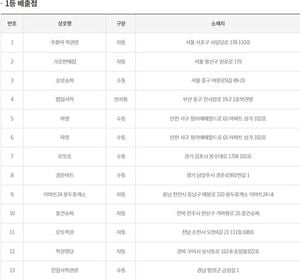Wales made history on Saturday, July 5, 2025, as they stepped onto the pitch for their first-ever appearance in a major women's football tournament, the UEFA Women's Euro 2025. The occasion was electric, held in Lucerne, Switzerland, where an estimated 3,800 Welsh supporters gathered at the Allmend Stadium to cheer on Rhian Wilkinson's side. Despite the historic milestone, Wales faced a tough challenge against the 2017 champions, the Netherlands, and ultimately fell 3-0 in a match that showcased both the promise and the hurdles of Welsh women's football.
The game started with Wales holding their own against a formidable Dutch side. The Welsh defense, marshaled by Gemma Evans, stood firm for much of the first half, repelling Dutch advances and maintaining a goalless stalemate that had fans hopeful. The atmosphere was charged with anticipation, as chants of "Mae Hen Wlad Fy Nhadau" echoed through the stadium, energizing the players and fans alike.
However, just before halftime, the deadlock was broken by Dutch captain Vivianne Miedema, who scored a stunning strike into the top right corner of the net. This goal was a landmark moment for Miedema herself, marking her 100th international goal, an achievement celebrated widely across the football community. The goal shifted momentum decisively, and Wales went into the break trailing 1-0.
The second half saw the Netherlands assert their dominance. Victoria Pelova quickly doubled the lead with a precise shot into the bottom left corner. Later, Esmee Brugts sealed the victory with a near-post strike, leaving Wales with a mountain to climb. Despite Wilkinson's efforts to inject fresh energy by bringing on attacking substitutes in the final 20 minutes, Wales were unable to find a way back into the match.
Injuries added to Wales' woes, with forward Ceri Holland forced off the field late in the game, raising concerns ahead of their upcoming fixtures. Nevertheless, the team's resilience was evident, with defender Lily Woodham making a crucial goal-line clearance to prevent further damage in the closing stages.
Throughout the match, the Welsh supporters, known as the 'Red Wall,' were a beacon of unwavering support. Their passionate singing and chants persisted even as the scoreline grew unfavorable, embodying the spirit and pride surrounding this historic campaign. The presence of First Minister Eluned Morgan and thousands of fans both in Switzerland and back home underscored the significance of this moment for Welsh football.
Wales' journey to this tournament has been remarkable. The women's national team was not formally recognized by the Football Association of Wales (FAW) until 1993, and the sport itself faced a long history of challenges, including a ban imposed by the FAW in 1922 that lasted until 1970. Since then, the game has steadily grown, culminating in Wales securing their first major tournament qualification in December 2024. This progress has been supported by strategic investments in facilities and youth development, with a 52% increase in registered female players since 2021 and significant funding directed towards inclusive changing facilities and artificial pitches.
UEFA vice-president Laura McAllister, a former Cymru captain and current deputy chair of UEFA's women's football committee, expressed immense pride in Wales' achievement. Reflecting on her own experiences playing for Wales in the 1990s, McAllister highlighted the importance of this qualification as a watershed moment that lifts a weight off the nation's shoulders. She praised the team's coach, Rhian Wilkinson, and the broader investment in the women's game, noting the strategic approach to nurturing talent and fan engagement.
McAllister also emphasized the role of the 'Red Wall' of supporters, who have been instrumental in creating a vibrant atmosphere at matches. With over 2,500 tickets sold through official channels and many more purchased via general sales, Welsh fans have made their presence felt in Switzerland, alongside families, players, and coaches from the football community.
On the broader stage, Wales' participation in the Women's Euro 2025 is part of a growing movement to professionalize and elevate women's football across Europe. UEFA's 'Unstoppable' strategy aims to improve every facet of the game, from better pitches and coaching to enhanced medical and technical support. The tournament itself has seen unprecedented interest, with 600,000 tickets sold before the kickoff, reflecting the sport's rising popularity.
The historic debut was also marked by high-profile support. Prince William, the Prince of Wales, extended his best wishes to the team ahead of their opening match, posting a message in Welsh on social media that celebrated the proud and historic moment for Welsh football. His encouragement, along with messages from other leaders like Sir Keir Starmer, added to the sense of national pride and unity.
Fans across Wales shared their emotions and hopes following the match. Libby Stott from Wigan and Nicole Power from Liverpool acknowledged the disappointment of the result but remained optimistic about Wales' chances in the tournament. Cardiff supporters Emma and Tom expressed pride in the team's battling spirit despite the loss, while others like Jenny Eos praised the team's endurance and the significance of their journey.
Looking ahead, Wales faces two formidable opponents in St Gallen: France and England. These matches will be crucial in determining whether Wales can advance from what has been dubbed the 'group of death.' The team and their supporters remain hopeful, drawing strength from the historic milestone already achieved.
The road to this tournament has been paved by generations of women who fought to grow the game in Wales, overcoming decades of obstacles. Today, with increased investment, growing fanbases, and a talented squad led by Wilkinson, Welsh women's football is poised to build on this foundation and inspire future generations.
As the tournament progresses, all eyes will be on Wales to see how they harness this historic moment. The passion of the 'Red Wall,' the strategic development behind the scenes, and the team's resilience on the pitch all signal a bright future for Welsh women's football. The journey is just beginning, and the world is watching.





